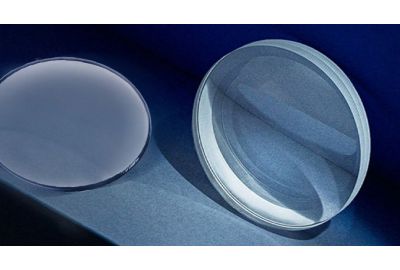The age-old debate: contacts or glasses? For many, deciding between these two vision correction options can be a tough call. Both have their unique advantages and disadvantages, and the "best" choice ultimately comes down to your lifestyle, preferences, and eye health. Let's break down the pros and cons of each to help you make an informed decision.
The Case for Glasses: Style, Simplicity, and Safety
Glasses have been a reliable vision correction staple for centuries, and for good reason. They offer a host of benefits that make them a popular choice for many:
- Low-Maintenance & Easy to Use: Glasses require very little fuss. You simply put them on and take them off. There's no need for special cleaning solutions every day, and they don't require direct contact with your eyes.
- Quick & Convenient: Getting ready in the morning? Just grab your frames and go! Glasses require minimal time to put on, making them a fast and efficient option for busy mornings.
- Versatile Lens Options: The same pair of lenses can be customized to adjust for various conditions. Think photochromic lenses that darken in sunlight (like Transitions®), progressive lenses for different distances, or anti-glare coatings. This versatility is hard to beat. Eyeglasses can be much more versatile. The same pair of glasses can adjust for distance in bifocals or progressive lenses. There are even blue light glasses to help with computer, laptop and smartphone reading, and light-responsive glasses that darken in bright sunlight. Contact lenses offer some multifocal capacity, but they're more difficult to use because they tend to shift when people blink, which affects vision correction.
- Durable & Long-Lasting: With proper care, a good pair of glasses can last for years. They are relatively durable and less prone to damage compared to the delicate nature of contact lenses.
- Gentle on Your Eyes: Glasses sit on your face, not directly on your eyes. This significantly reduces the risk of eye irritation, dryness, or potential damage to the cornea, making them a great choice for those with sensitive eyes.
- Easier to Keep Clean: Cleaning glasses is a straightforward process – a quick wipe with a microfiber cloth and some lens cleaner is usually all it takes. Contacts, on the other hand, demand rigorous hygiene.
- A Fashion Statement: Let's face it – glasses are stylish! With an endless array of frames, colors, and designs, glasses have become a prominent fashion accessory. They can enhance your facial features, complement your outfit, and express your style. Even prescription eyeglasses offer a way to make a fashion statement, whereas contact lenses do not. Browse Payne's popular trendy glasses or vintage glasses. Shop by frame color, frame shape or frame style or frame material to get the look you want.
- Wider Field of Vision: Because contacts sit directly on your eye, they move with your eye, providing a much wider, unobstructed field of vision compared to glasses, which have frames that can limit peripheral sight.
- No Fogging Up: Stepping indoors from the cold, cooking, or wearing a mask? Glasses tend to fog up, which can be annoying. Contact lenses remain clear in all conditions.
- Ideal for Sports & Activities: For athletes or individuals participating in high-impact activities, contact lenses offer unparalleled convenience. They won't slip down your nose, fall off, or break during movement, providing complete freedom.
- Higher Maintenance & Care: Contact lenses require a strict daily cleaning and disinfection routine to prevent infections. This involves specific solutions, cases, and proper handling techniques.
- Risk of Eye Irritation: Even with proper care, contacts can cause dryness, discomfort, or irritation, especially after long hours of wear or in dry environments.
- Increased Risk of Infection: Because contact lenses are placed directly on the eye, there's a higher risk of serious eye infections if hygiene isn't meticulously maintained. Improper use, extended wear, or contaminated solutions can lead to painful and potentially sight-threatening conditions.
- Choose glasses if you value: low maintenance, ease of use, eye health, versatility in lens options, durability, and the opportunity to express your style.
- Opt for contact lenses if you need: an unobstructed field of vision for sports or active lifestyles, freedom from fogging, and prefer the look of no frames on your face. Just be prepared for the added responsibility of their care.
The Appeal of Contact Lenses: Freedom and Field of Vision
Despite the many benefits of glasses, contact lenses offer unique advantages that make them the preferred choice for others, especially those with active lifestyles:
However, these benefits come with notable drawbacks:
Making Your Choice
Ultimately, the best choice between contacts and glasses depends on what you prioritize.
Many people also choose to use a combination of both – glasses for daily wear and contacts for specific activities like sports or special occasions.
The best way to decide is to consult with your eye care professional. They can assess your vision needs, eye health, and lifestyle to recommend the best option or combination for you.
Source:
https://progressive-glasses.com/eight-reasons-why-glasses-are-better-than-contacts/

